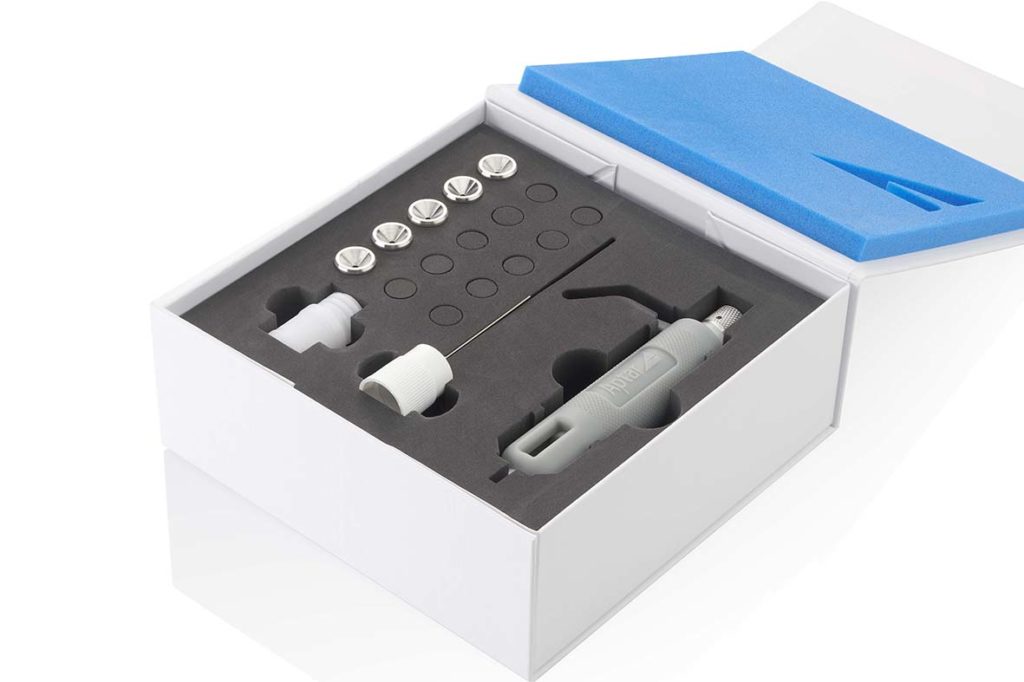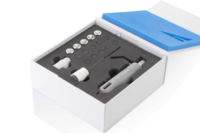PADA (Powder Administration Device for Animals) is a unique starter kit from Aptar Pharma, designed to support pre-clinical pulmonary research in pharmaceutical, academic and governmental research laboratories.
PADA enables precise, rapid and efficient intra-tracheal administration of a powder directly to the lungs of mice. The kit contains a convenient, hand-held device with air-driven aerosol generator, ideal for use in early phase drug development of new pulmonary treatments such as asthma, COPD, lung cancers and cystic fibrosis.








